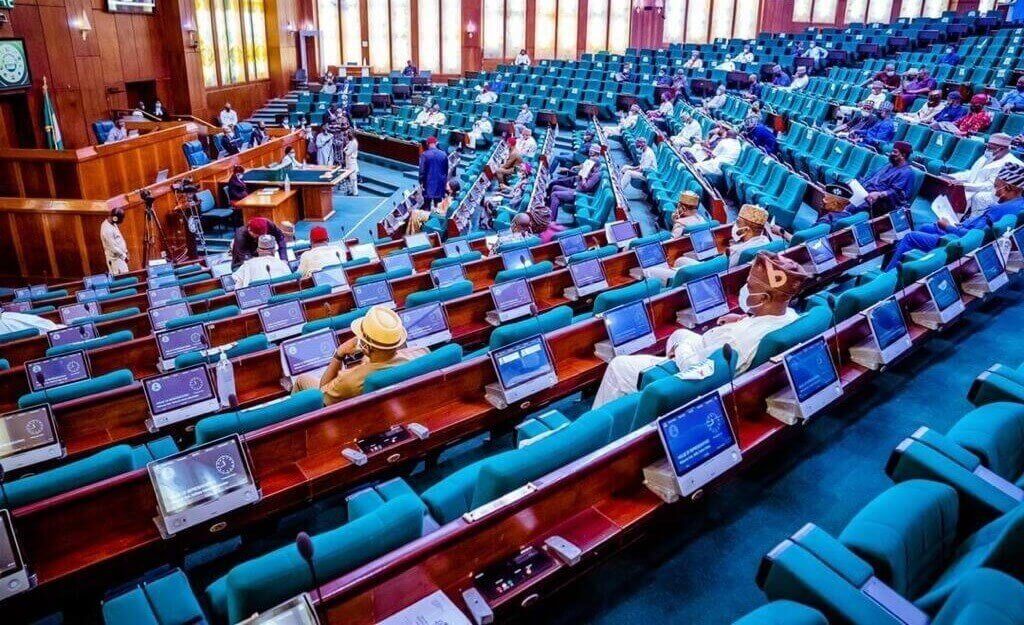The House of Representatives has refuted allegations of extortion by Vice-Chancellors, Provosts and Rectors against a standing committee of the House.
Some Vice-Chancellors had previously accused the House Committee on TETFund, headed by Hon. Miriam Onuah, of demanding money during oversight visits.
Advertisement
However, the House spokesperson, Hon. Rotimi Akin, denied the allegations in a statement on Sunday. He said the claims follow a false and spent narrative that lawmakers have been extorting higher education administrators.
Akin explained that legislative oversight of public funds does not constitute “unwholesome overbearing influence” or breach institutional autonomy, as argued in the allegations.
He cited Section 80(3) of the 1999 Constitution, which requires National Assembly approval for withdrawals from public funds. Sections 88 and 89 also empower the National Assembly to investigate the conduct of any entity charged with administering public funds.
“The Nigerian Constitution serves as the Supreme Law of the Land, and every legislation or action remains subordinate to the provisions of the constitution even in the case of a seeming contradiction.
Advertisement
“This is by virtue of Section 1 of the same constitution and there have been a plethora of the apex court’s affirmations of this principle.
“It is essential to recognise that the Constitution acts as the litmus test for the validity of every other law or action in the country, ensuring adherence to constitutional principles.
“In light of this constitutional imperative, it is our firm belief that the TETFund Act, like any other legislation in Nigeria, should be interpreted and applied in harmony with the constitution.
“While Section 7(5) of the TETFund Act may not explicitly mention National Assembly approval, it should be read and understood within the broader context of the Constitution, which mandates such approval for withdrawals from public funds.
“The absence of an express statement in the TETFund Act for National Assembly approval does not imply an exemption from constitutional provisions. Rather, it can be interpreted as an inherent understanding that all legislation, including the TETFund Act, is subject to the overarching principles enshrined in the Constitution,” said the reps spokesman.
Advertisement
Rotimi insisted that the directive by the House Committee on TETFUND in its letter to the Committee of Vice Chancellors of Nigerian Universities (CVCNU), requesting a suspension of the implementation of the 2024 Intervention Fund pending its approval is therefore well within constitutional bounds and in line with the need to ensure accountability.
He stated that for anyone or entity to resort to blackmail of the Committee with allegations of extortion, they must understand that such an action is libelous and necessary legal action would be taken.
“Not forgetting that the content of these reports raises fresh fears about the falling standard of journalism in our dear country; given especially that mere insinuations (rather than statement of proofs) could be elevated in such manner by any national daily.
“Secondly, it is pertinent to add that although an earlier communication on this subject matter was from the House, the scheduled hearing on 27th February 2024 is organised by a Joint Senate and House Committee on TETFund. A similar approach was employed during Budget Defence by the various Ministries, Departments, Agencies, Parastatals and Government-Owned Enterprises (GOEs) during consideration of the 2024 Appropriation Bill (now Act).
“We believe that the action of holding Joint Committee meetings where necessary, allays whatever fears (due to cost and sundry reasons) such that agencies of government will have to interface with the so-called “duplicated committees,” as insinuated in one of the reports.
“Thirdly, it is also well known that there are established channels for these “complainants” to lay whatever complains they may have against the invitation handed them or the content of the letter in itself. In this regard, neither the CVCNU nor TETFund has made any formal complaint or claims against the Committee or the said invitation.
Advertisement
“Since we have not received any such complaints, we believe the false narratives being peddled are not the positions of the tertiary institutions’ administrators, but a few among them who have a lot to fear and consequently seek to hide, and have jettisoned formal channels and opted for coordinated sponsored smear campaigns against the Committee.
“Finally, it is on record that the Independent Corrupt Practices and Other Related Offences Commission (ICPC) wrote to some universities in July 2023, as part of its investigation into alleged Violation of the Corrupt Practices and Other Related Offences Act 2000.
“The ICPC had in its letter requested these universities to direct some of its staff to refund unutilised funds released to them under Conferences and ensure that the same is paid into ICPC’s TSA Recovery Account through a Remita Platform.
‘’As a legislature desirous of effective service delivery, the Rt. Hon. Abbas Tajudeen-led House believes that such issues are avoidable where strengthened oversight exists.
“In line with our 8-point Legislative Agenda, Strengthening Good Governance is the first among the eight priorities of this Assembly so listed. Anti-Corruption and Legislative Oversight are key pillars in these efforts at strengthening good governance. It therefore follows that hearings such as these are to be recognised and respected as part of legislative initiatives to strengthen our oversight functions to combat corruption in Nigeria,” he added.



